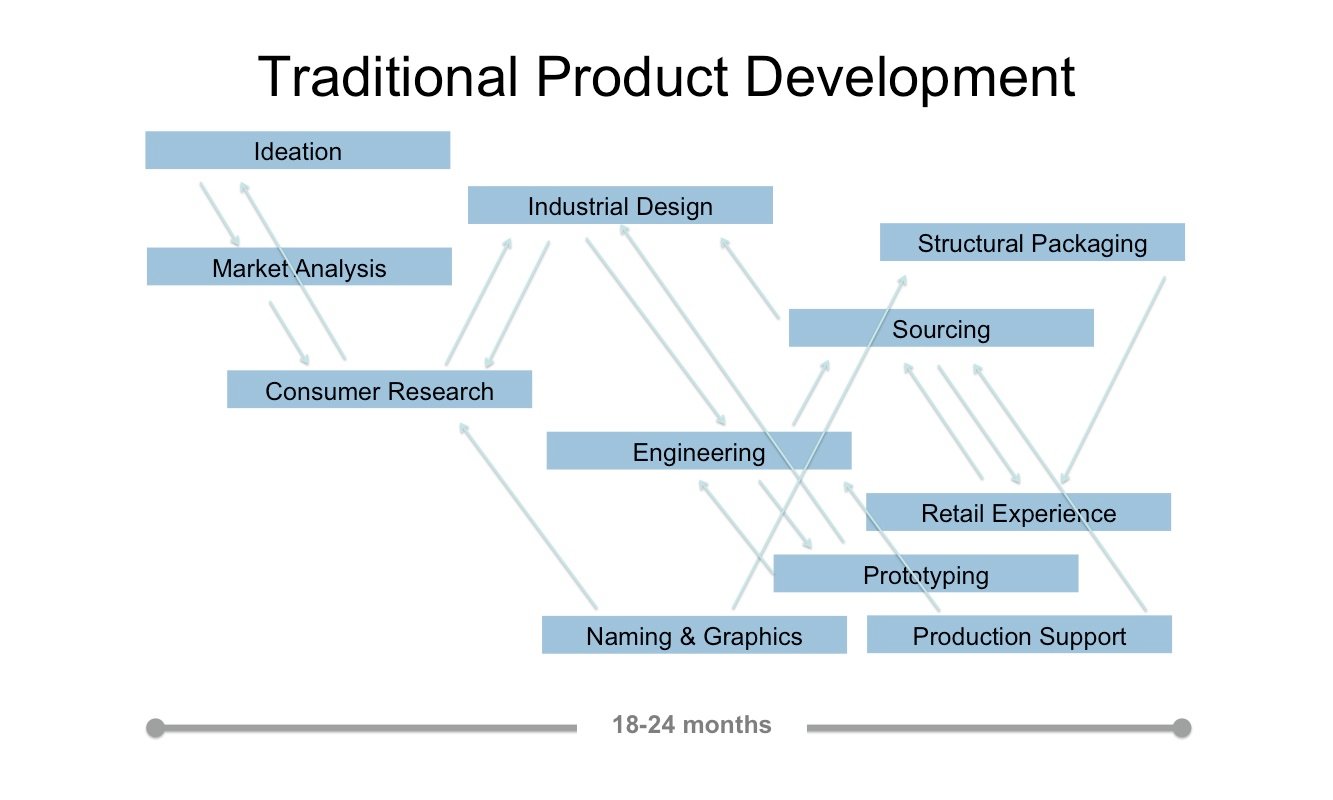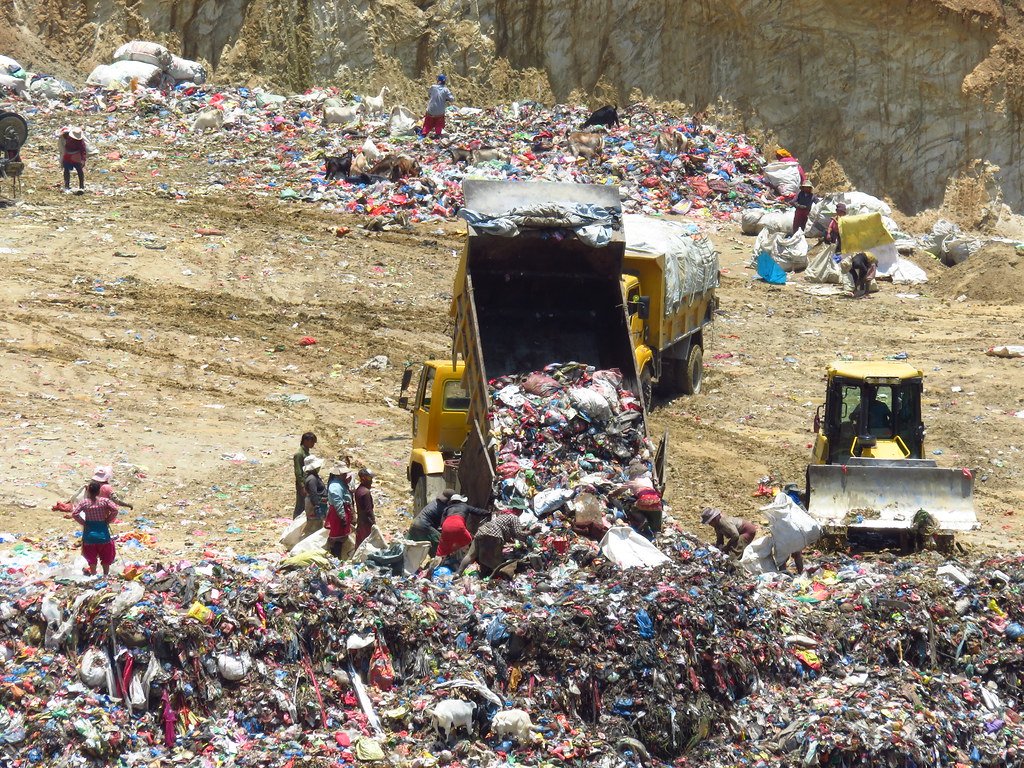With each passing year, our planet is grappling with the ever-growing challenge of waste management. The piles of rubbish continue to burden our cities, while our finite resources are continuously depleted. Amidst this pressing concern, one solution has slowly emerged as a beacon of hope – off-grid waste management. Shifting away from traditional waste management systems, this alternative approach aims to tackle the issue head-on, focusing on sustainability, efficiency, and environmental consciousness. By diverting waste from overcrowded landfills and implementing innovative techniques, off-grid waste management promises a future where waste becomes a resource rather than a burden. In this article, we will explore the significance of off-grid waste management systems and delve into the myriad benefits they bring to our communities and the planet as a whole.
Table of Contents
- The Importance of Off-Grid Waste Management: A Sustainable Solution for a Cleaner Planet
- Embracing Innovative Approaches: The Key to Effective Off-Grid Waste Management
- Minimizing Environmental Impact: Strategies and Best Practices for Off-Grid Waste Disposal
- Empowering Local Communities: Promoting Education and Participation in Off-Grid Waste Management
- Building Partnerships for Success: Collaborative Efforts for Efficient Off-Grid Waste Management
- Q&A
- In Conclusion

The Importance of Off-Grid Waste Management: A Sustainable Solution for a Cleaner Planet
In a world grappling with the consequences of excessive waste generation, finding sustainable solutions has become paramount. Off-grid waste management is emerging as an innovative approach that holds immense importance for creating a cleaner planet. By radically transforming how we handle waste, this solution offers a ray of hope in combating pollution and preserving our environment.
Off-grid waste management operates independently of traditional waste disposal systems, focusing on sustainable practices that minimize waste production and maximize resource recovery. It emphasizes recycling, composting, and waste reduction, taking a holistic approach to waste management. This unique system not only diverts waste from landfills but also reduces greenhouse gas emissions, conserves energy and water, and ensures the responsible treatment of hazardous materials.
Implementing off-grid waste management strategies can be achieved through the following practices:
- Source Separation: Promoting the separation of different types of waste at its origin for efficient recycling and sorting processes.
- Composting: Encouraging the composting of organic waste, which not only reduces landfill waste but also enriches soil fertility.
- Waste-to-Energy Conversion: Harnessing the potential of waste by converting it into renewable sources of energy like biogas or electricity.
- Community Engagement: Fostering awareness and involvement of local communities to actively participate in waste management practices and promote a collective responsibility.
With the immense benefits it offers, off-grid waste management is a critical solution that helps us transition towards a more sustainable and cleaner planet. By embracing this approach, we can significantly reduce pollution, conserve resources, and create a healthier environment for generations to come.

Embracing Innovative Approaches: The Key to Effective Off-Grid Waste Management
When it comes to off-grid waste management, conventional methods often fall short. That’s why it’s crucial to think beyond traditional techniques and embrace innovative approaches. By doing so, we can address the challenges of waste disposal in remote areas, promoting sustainability and preserving our environment.
One innovative approach gaining traction is the use of mobile waste management units. These self-contained units, equipped with state-of-the-art technology, can efficiently process and transform various types of waste into valuable resources. From bioconversion of organic waste to energy generation, these units offer versatile and eco-friendly solutions. Furthermore, they can be easily transported to remote locations, ensuring no waste is left unattended.
Advantages of embracing innovative approaches in off-grid waste management:
- Sustainability: Adopting innovative approaches allows us to reduce our reliance on traditional landfill methods and prevent environmental degradation. Implementing renewable energy generation from waste can create a sustainable cycle that minimizes our carbon footprint.
- Efficiency: Innovative waste management solutions are designed to optimize resource utilization, reducing inefficiencies and costs. With advanced technologies, the process of waste conversion can be streamlined, allowing for a more efficient use of resources and reducing the overall waste volume.
- Scalability: Embracing innovative approaches opens up possibilities for scalable waste management systems. As the demand for off-grid waste management solutions increases, the flexibility of these approaches allows for adaptation and expansion, ensuring long-term effectiveness in waste disposal.
By embracing innovative approaches, we have the power to revolutionize off-grid waste management and strengthen its positive impact on both the environment and communities. Let’s usher in a new era of sustainable waste solutions, working towards a greener and cleaner future.

Minimizing Environmental Impact: Strategies and Best Practices for Off-Grid Waste Disposal
Strategies and Best Practices for Off-Grid Waste Disposal
When it comes to minimizing our environmental impact in off-grid settings, efficient waste disposal strategies are essential. Here are some innovative practices and tips that can help you effectively manage waste while treading lightly on the planet:
- Composting: One of the most eco-friendly ways to dispose of organic waste is through composting. Set up a composting system to transform food scraps, yard waste, and other biodegradable materials into nutrient-rich soil that can be used for gardening or landscaping.
- Recycling and Repurposing: Embrace the mantra of “reduce, reuse, recycle” to divert waste from landfills. Sort and recycle your recyclable materials, and get creative with repurposing. Think of ways you can give new life to items that would otherwise be discarded.
- Proper Disposal Methods: For non-biodegradable or hazardous waste, ensure that you dispose of it properly. Research local regulations and find designated facilities or drop-off points where you can safely get rid of batteries, electronics, chemicals, and other potentially harmful substances.
Remember, incorporating these strategies into your off-grid lifestyle not only helps protect the environment but also promotes a sustainable and responsible approach to waste disposal. By taking small steps, we can make a big difference in minimizing our overall environmental impact.

Empowering Local Communities: Promoting Education and Participation in Off-Grid Waste Management
Why Education and Participation are Essential in Off-Grid Waste Management
Empowering Local Communities through Knowledge
Education plays a pivotal role in transforming how local communities approach off-grid waste management. By providing access to knowledge and raising awareness, we empower individuals to make informed decisions that contribute to a cleaner and healthier environment. Through educational programs tailored to the specific needs of each community, we aim to foster a strong sense of responsibility and stewardship towards waste management.
Our approach goes beyond theoretical lessons; we encourage hands-on experiences to enhance understanding. Workshops and practical training sessions not only help community members learn proper waste disposal techniques but also enable them to develop skills for recycling and upcycling. With this knowledge, individuals can actively participate in waste reduction efforts and become agents of change within their communities.
Emphasizing Participation for Lasting Impact
Encouraging participation is another vital aspect of our mission. We firmly believe that when everyone gets involved, the impact of off-grid waste management initiatives is significantly amplified. By creating spaces for community members to actively engage in waste management projects, we foster a sense of ownership and responsibility.
We organize community clean-up drives, providing the necessary tools and resources for individuals to take action. By coming together, we not only actively address waste issues but also build stronger bonds and a shared sense of purpose within local communities. This collective effort fosters a culture of sustainability that extends far beyond waste management, positively impacting other areas of community development as well.
The Way Forward: Empowering Communities for a Sustainable Future
Our commitment to empowering local communities in off-grid waste management stems from the understanding that sustainable solutions require collaboration and active involvement. By promoting education and participation, we are equipping individuals with the knowledge and skills needed to protect the environment for future generations.
To achieve this, we continue to partner with local schools, community centers, and organizations to establish long-term educational programs and initiatives. By emphasizing the importance of education and encouraging community participation, we pave the way for a more sustainable future, where waste is managed responsibly, and local communities thrive.
Building Partnerships for Success: Collaborative Efforts for Efficient Off-Grid Waste Management
Efficient waste management is a pressing issue, especially in off-grid areas where access to proper waste disposal facilities is limited. To tackle this challenge, building partnerships and fostering collaboration is key. By joining forces, organizations can bring together their unique expertise, resources, and networks to develop sustainable solutions for off-grid waste management.
In a collaborative effort, stakeholders can work hand in hand to identify and implement innovative waste management strategies tailored to the specific needs of off-grid communities. This may include exploring alternative waste treatment technologies, promoting recycling and waste reduction practices, and establishing community-based waste collection systems.
The benefits of building partnerships for efficient off-grid waste management:
- Shared knowledge and expertise: Collaboration allows for the sharing of insights, best practices, and technological advancements, leading to more effective waste management strategies.
- Optimized resource allocation: Pooling resources, whether financial or material, ensures a more efficient use in the development and implementation of waste management initiatives.
- Increased impact and scalability: Collaborative efforts enable the scaling up of waste management solutions, reaching a larger number of off-grid communities and maximizing their positive impact.
Building partnerships for success in off-grid waste management requires a collective commitment to environmental sustainability and a shared vision for a cleaner and healthier future. Together, we can work towards efficient and sustainable waste management practices that address the unique challenges faced by off-grid communities.
Q&A
Why is off-grid waste management important?
Off-grid waste management is crucial because it helps protect the environment and public health by preventing pollution and the spread of diseases. It also promotes sustainable living and reduces the burden on existing waste management systems.
What are the advantages of off-grid waste management?
Off-grid waste management allows individuals and communities to take control of their waste, reducing their reliance on centralized systems. It fosters creativity and innovation in finding sustainable solutions tailored to specific needs, while reducing costs and minimizing the carbon footprint.
How does off-grid waste management contribute to environmental conservation?
By implementing off-grid waste management, we reduce the amount of waste that ends up in landfills or is incinerated, which reduces greenhouse gas emissions and prevents contamination of soil and water. Furthermore, it promotes recycling and composting, conserving resources and preserving natural ecosystems.
In what ways does off-grid waste management improve public health?
Off-grid waste management mitigates the risk of diseases and infections that can arise from inadequate waste disposal. Proper waste management systems prevent the breeding of disease-carrying pests, such as mosquitoes, and the contamination of air and water sources, which are essential for human health and hygiene.
How does off-grid waste management support self-sufficiency?
Off-grid waste management encourages self-reliance by empowering individuals and communities to manage their own waste within their means. By reducing reliance on external waste management systems, it promotes resourcefulness, resilience, and the ability to adapt to diverse environmental and social circumstances.
Can off-grid waste management be implemented in urban areas?
Absolutely! In urban areas, off-grid waste management can involve decentralized systems, like composting, recycling hubs, and community-driven initiatives. By integrating this approach into urban planning and encouraging citizen participation, cities can significantly reduce waste and foster a greener and more sustainable environment.
What role can technology play in off-grid waste management?
Technology plays a vital role in off-grid waste management. From innovative recycling processes to advanced waste-to-energy systems, technology enables more efficient waste handling, sorting, and treatment. It also facilitates data collection and analysis, helping optimize waste management strategies for maximum sustainability and effectiveness.
How can individuals contribute to off-grid waste management?
Individuals can actively participate in off-grid waste management by practicing waste reduction, recycling, and composting at home. They can also support local initiatives, such as community recycling centers, promote awareness, and advocate for sustainable waste management policies and practices in their communities and workplaces.
In Conclusion
As we reach the end of our exploration into the importance of off-grid waste management, we are reminded of the immense power and responsibility that we hold as guardians of our beautiful planet. From the towering mountains to the deepest valleys, our Earth entrusts us with the preservation of its delicate ecosystems.
By venturing off-grid, we unlock a world of innovative solutions that not only make waste management more efficient but also sow the seeds for a more sustainable tomorrow. The journey toward harmonious coexistence with nature is not an easy one, but through continuous education and awareness, we can pave the path for a truly green future.
Let us stand as custodians of our environment, finding solace in the hum of a solar-powered composter or the gentle whir of wind turbines. Let us celebrate the triumphs of recycling initiatives and the valor of those who care for our waste in the absence of traditional infrastructure.
When we embrace off-grid waste management, we become architects of change, building a foundation where every discarded item has the potential for rebirth and the ability to fuel our sustainable ambitions. This enigmatic realm empowers us to redefine our relationship with waste, transforming it from an unwanted burden into a valuable resource.
Now, armed with knowledge and the desire to make a difference, let us embark on a journey of change together. Let us strive to eliminate waste at its source, champion the recycling revolution, and explore the uncharted territories of innovative waste management technologies.
Remember, dear readers, it is not enough to merely acknowledge the importance of off-grid waste management; it is our duty to actively engage and inspire others to do the same. For in the words of the late visionary Rachel Carson, “The more clearly we can focus our attention on the wonders and realities of the universe about us, the less taste we shall have for destruction.”
So let us bask in the radiance of a cleaner, greener world, each step serving as a testament to our commitment towards sustainable waste management. Together, we can envision a future where waste no longer overwhelms our environment, but instead ignites a beacon of hope, reminding us of our capacity to coexist harmoniously with nature.
As an affiliate, my content may feature links to products I personally use and recommend. By taking action, like subscribing or making a purchase, you’ll be supporting my work and fueling my taco cravings at the same time. Win-win, right?
Want to read more? Check out our Affiliate Disclosure page.